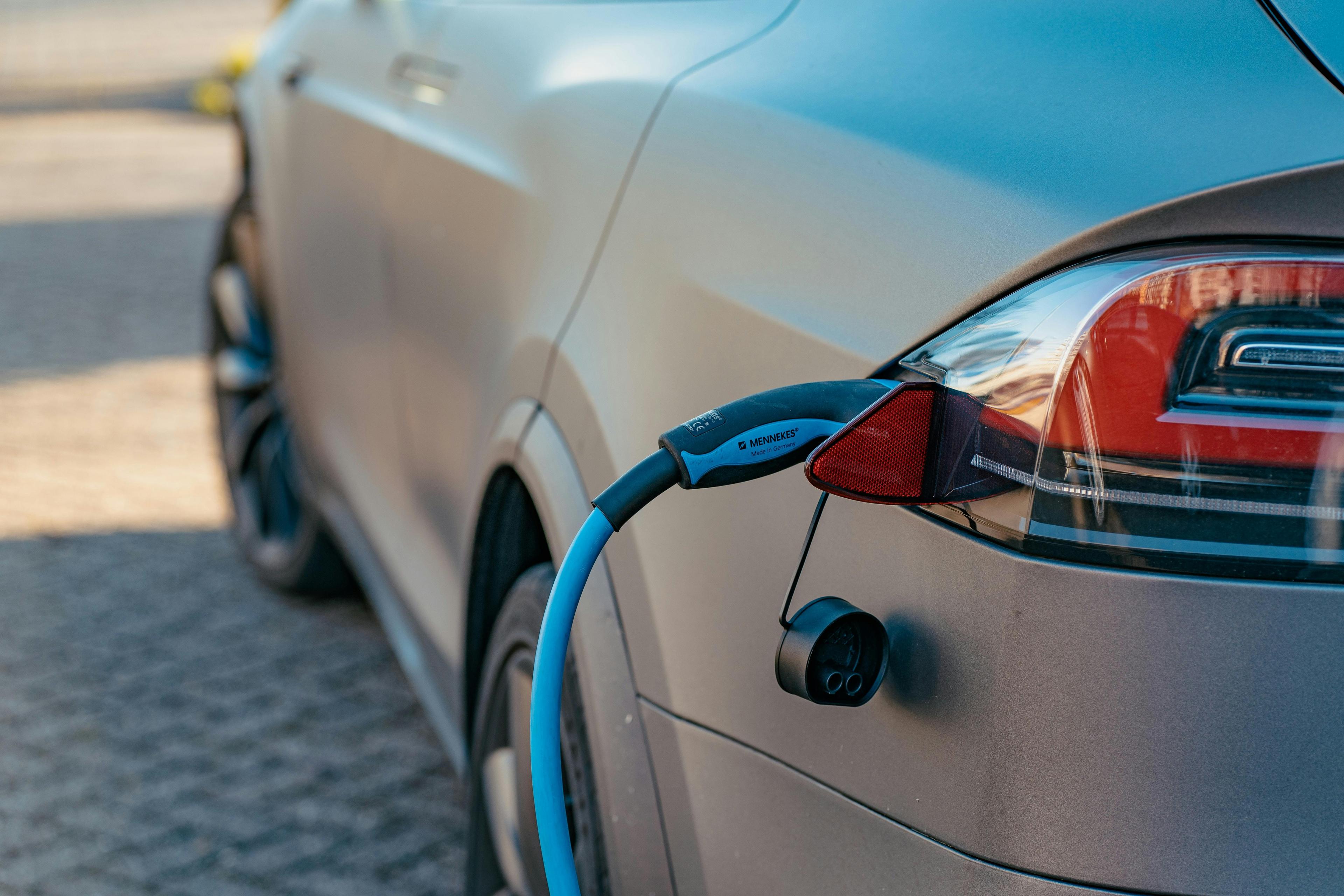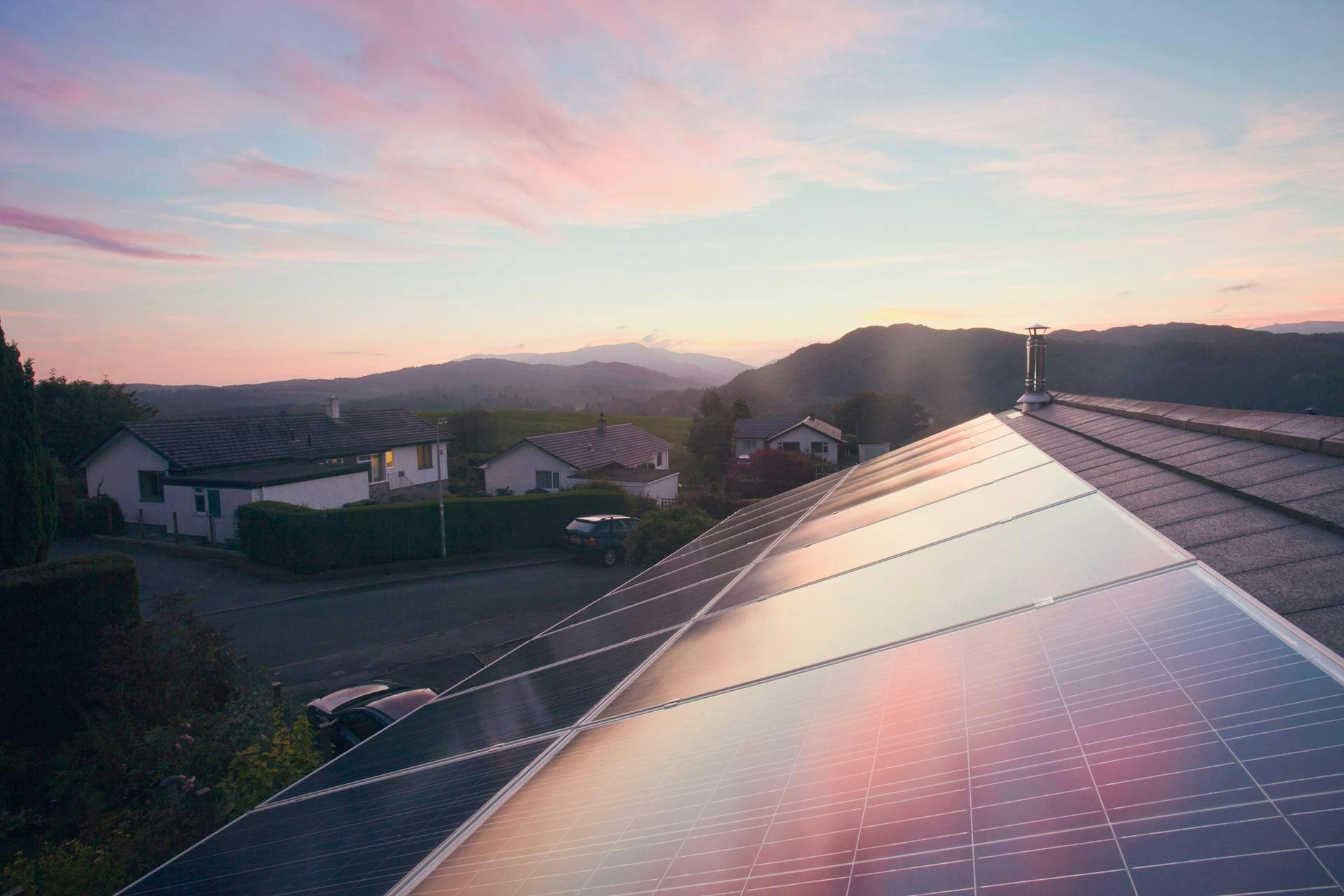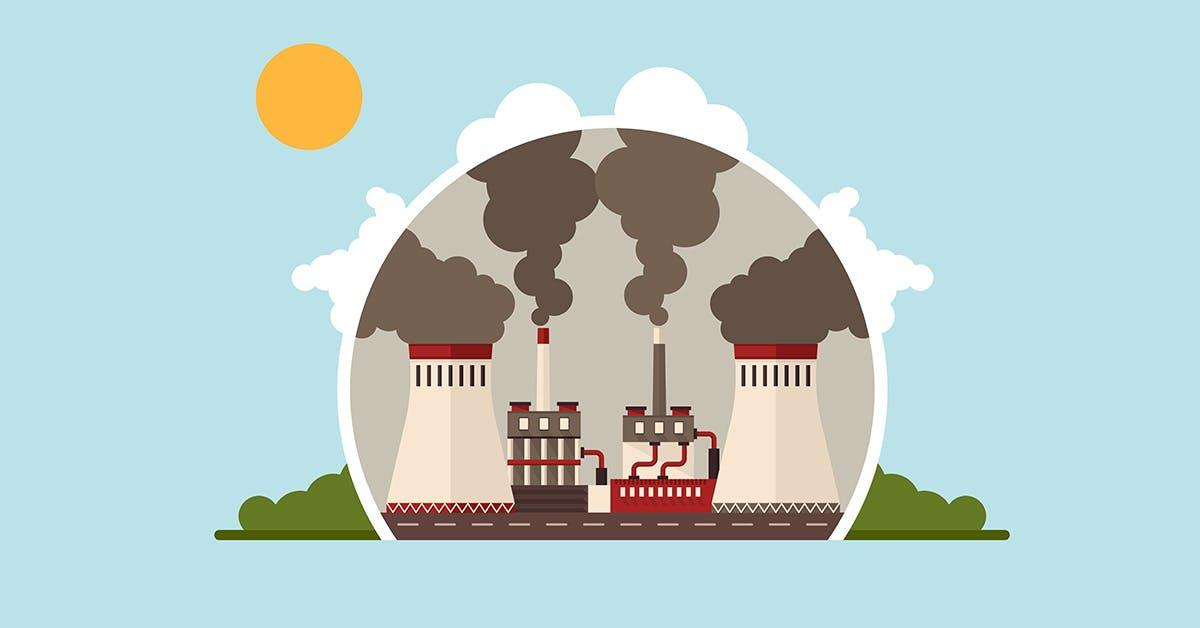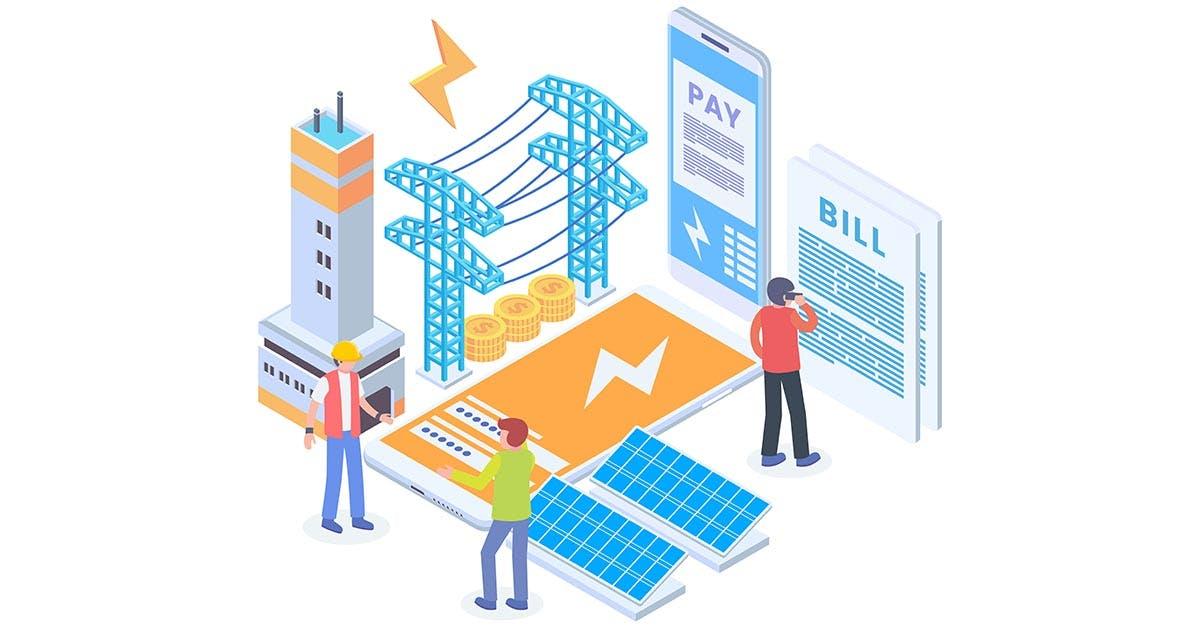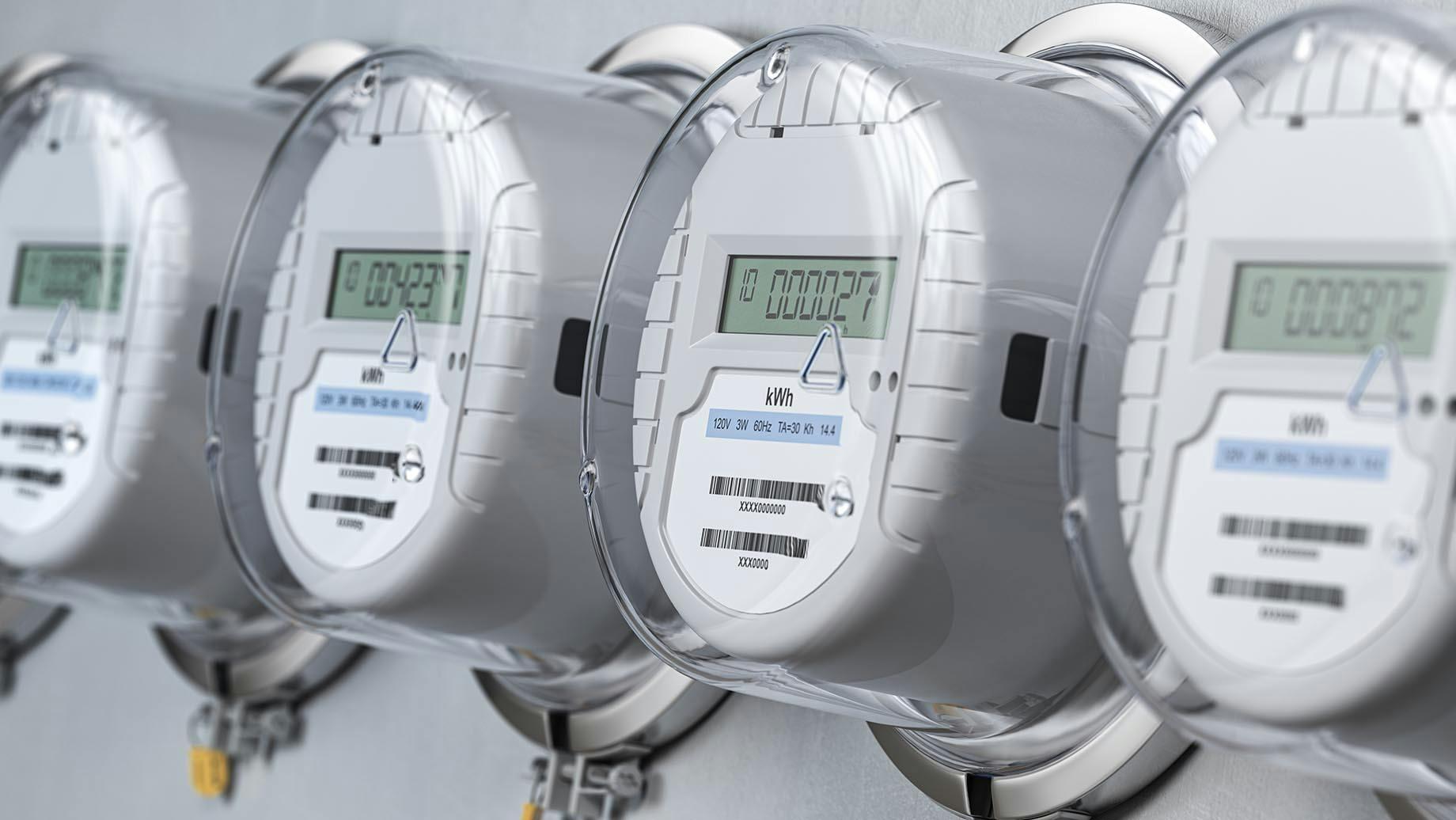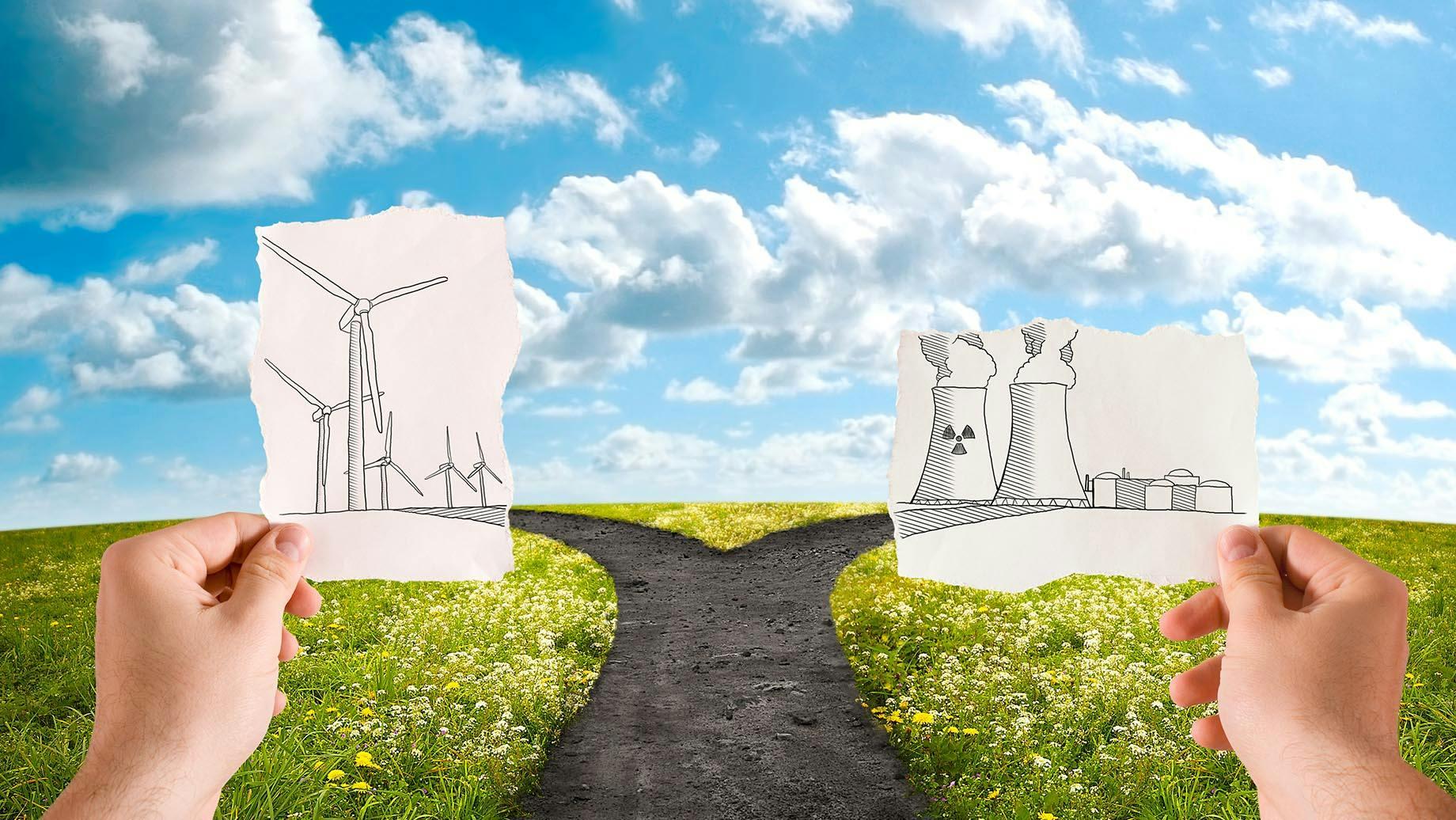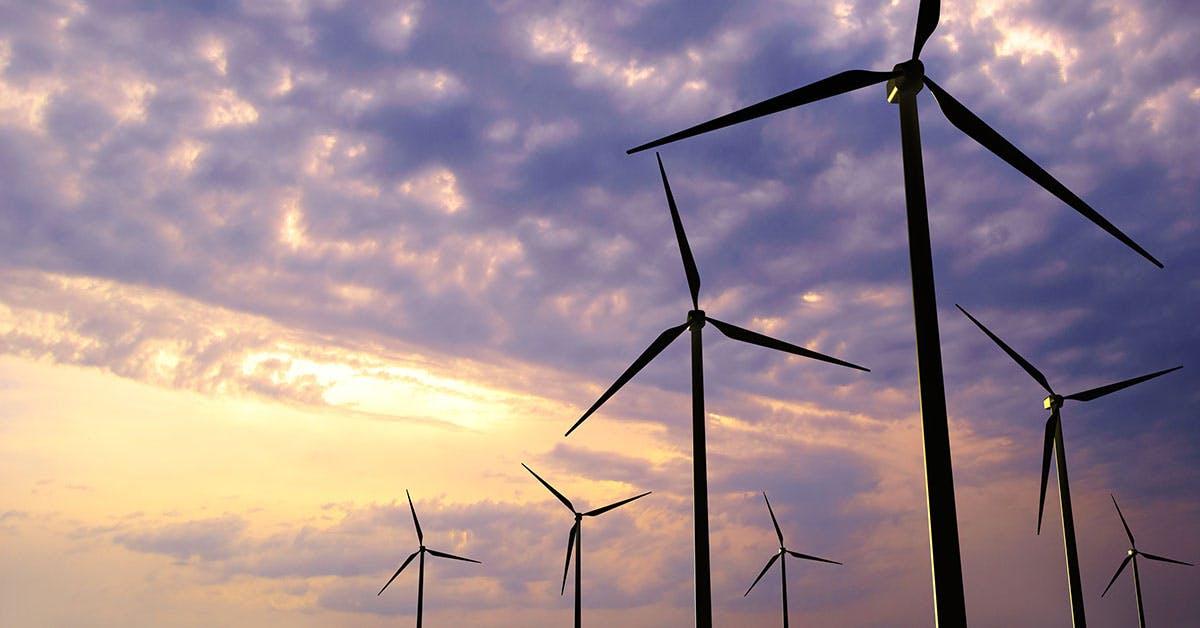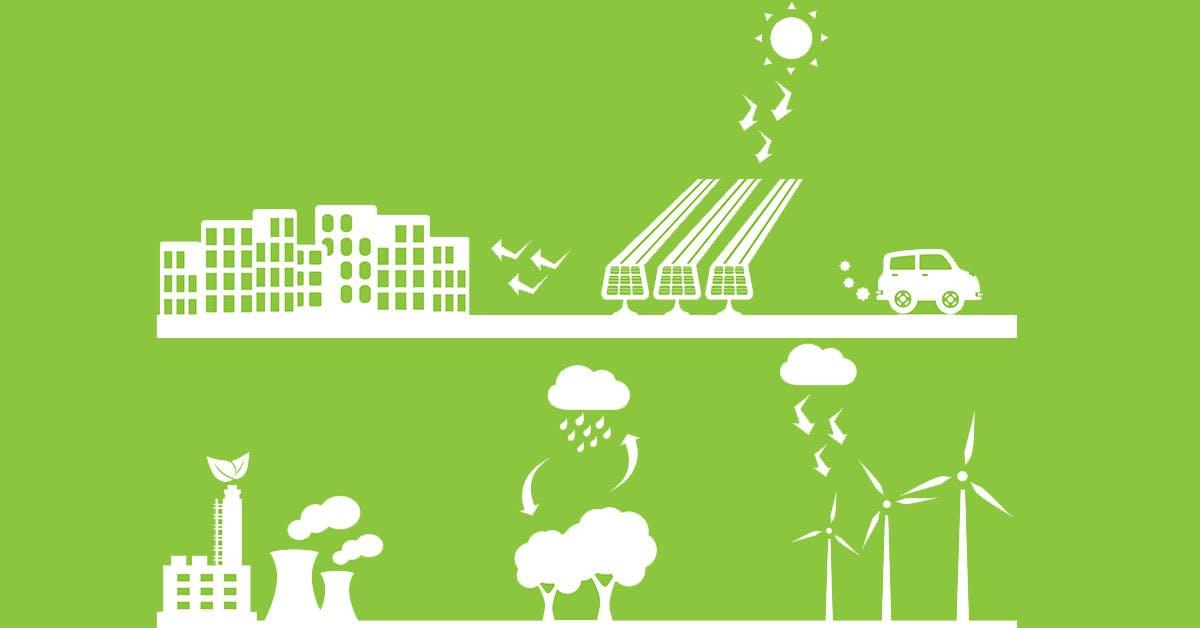
Gas vs Electric Appliances: Is Gas Cheaper Than Electric?
Inspire Clean Energy
16 min read
category: Sustainable Living
Don't worry about climate change— do something about it.
Our clean energy plans are the easiest way to reduce your home's carbon footprint.
Switch to clean energyPurchasing a new home or new appliances is a big investment that may leave you wondering if there is a difference between gas vs. electric appliances. Appliances may seem to have the same functionality as gas or electricity, so which is better? Is it more affordable to have gas or electric appliances? In most cases, gas appliances are cheaper to operate than electric appliances. However, gas appliances are usually more expensive upfront. If you are trying to compare gas versus electric appliances, keep reading.
What’s the difference between gas and electric appliances?
In some cases, you may only be able to have electric appliances. However, most homes should be able to choose between gas and electric appliances. In most cases, gas appliances are cheaper to operate but typically cost more upfront. Compared to electricity, gas is a more efficient heating fuel. As far as safety is concerned, gas and electric appliances may have safety hazards. Homes that use gas appliances should have proper ventilation and a system to test your carbon monoxide alarm regularly. Homes that use electric devices must make sure wiring is up to date and appliances are installed correctly. Electric appliances carry a slight risk of fire and electrocution.
Is it better to have gas or electric appliances?
While electric devices may have a reduced carbon footprint, gas appliances can save you up to 30% on your utility bill. However, some electric appliances may outperform gas appliances. There are pros and cons to gas and electric appliances, so it’s challenging to decide what is best.
Do homebuyers prefer gas or electric stoves?
Most homebuyers prefer a gas stove. In most cases, gas stoves offer superior temperature control and instant heat. When it comes to resale, whether you have gas or electric appliances should not affect the actual value of your home. For most homebuyers, there are more important priorities to be focused on rather than the appliances. Appliances are a simple upgrade as opposed to the number of bedrooms or layout.
Which is cheaper to cook with: gas or electricity?
Gas appliances may be more expensive to purchase but should cost less to cook with and operate. While we all like to save money if your home is not set up for gas appliances, it probably won’t make sense to convert.
What uses the most gas in the home?
According to the Energy Information Administration, space heating for air and water uses the most natural gas in homes. There are a few reasons that you may have a high gas bill. The first reason is fuel prices. Currently, we are in the midst of a gas price boom. As a result, you may have seen an increase in your monthly natural gas bill. Another reason is supply and demand. In the winter, your natural gas bill may increase as you compete with many other homes to claim your share of available resources. Furthermore, weather changes can cause an increase in your gas bill. Lastly, if you have an outdated or inefficient heating system, you may be overusing gas.
Are gas stoves unhealthy?
While we often think about outdoor air quality, indoor air quality is essential too. Reports have shown that gas stoves can cause indoor air pollution. Compared to electric stoves, gas stoves can have 50% to 400% higher levels of air pollution. However, if you have proper ventilation and filtration, your gas stove is most likely not dangerous. Gas stoves are perfectly safe to use in the home as long as appropriate safety measures are followed.
Which is safer: electric or gas stove?
Electric stoves may be considered safer than gas stoves. In addition, there is no risk of a gas leak with an electric stove. However, both gas and electric stoves can cause burns or fires. If you are very budget-conscious you may opt for a gas stove. If so, make sure to install a carbon monoxide alarm. Here are some other safety precautions to ensure indoor air is clean when using a gas stove:
Turn on the vent fan Open a window Use an air purifier Get regular inspections
Do gas appliances increase home value?
Some experts believe that gas appliances can increase home value, while some experts believe the opposite. Regardless of belief, experts usually do agree that natural gas appliances are more desirable. More than 70% of homebuyers want natural gas appliances. However, it’s important to remember there is something for everyone. If a buyer prefers electric and find it very important to them, there may be fewer options on the market. As a result, they may be willing to pay more for the home available with electric appliances.
Are gas ovens more reliable than electric ones?
According to Consumer Reports, electric ovens often outperform gas ovens. A recent broiling test, found that 61% of electric ovens earned a rating of Excellent or Very Good. The percentage of gas ranges that scored that high was less than 20%.
What are the advantages and disadvantages of a gas stove?
While gas and electric stoves serve the same purpose, there are a few advantages and disadvantages to both of them. Let’s take a look at some advantages and disadvantages of a gas stove:
Advantages: Instant heat Heat transmitted more evenly May be functional during a power outage Cheaper to operate
Disadvantages: Expensive to convert from electric to gas Risk of carbon monoxide poisoning May cost more upfront than an electric stove
What are the disadvantages of an electric stove?
The two significant disadvantages of an electric stove are that it usually takes longer to heat up and cool down, and if the electricity goes out, you won’t be able to use your stove. However, if you have a generator or alternative power source, you may still be able to use an electric stove during an outage.
Is using gas cheaper than electricity?
Gas is almost always cheaper than electricity.
Do professional chefs prefer gas or electric ovens? Does this matter to me?
Whether a professional chef prefers a gas or electric oven is usually all about personal preferences. Some professional chefs prefer gas ovens, while others prefer electric ovens. As an at-home chef for your family, you’ll need to decide what your personal preference is.
What's better: a gas or electric oven?
While most may prefer a gas stove, electric ovens may be more popular than gas ovens. Because, of course, you can’t win all your battles, right? Either you will need to compromise for an electric stove or oven or convert your hookup to allow a gas stove and electric oven. Keep in mind the quality of appliances can have a significant impact on performance as well.
Which is better for baking gas or electricity?
Most bakers prefer an electric oven. However, they may prefer a gas flame for the range. For this reason, dual-fuel range oven combinations are a popular option. In addition, electric ovens have more consistent heat and a drier environment. The drier climates can help food get the crisp golden brown finish you may have only thought existed on the internet.
Are gas dryers more dangerous than electric ones?
Both gas and electric dryers come with their own set of potential safety hazards. Regardless of the type of dryer, if it’s not properly installed, dryers can be dangerous. With that being said, whether you use a gas or electric dryer, you should have a professional install it. Electric dryers may pose a fire risk, but it’s very low if properly installed. However, gas dryers can cause fires too. If gas is leaked into your home, you may be at risk for fire or poisoning. If you have a gas dryer, you should install a carbon monoxide alarm. In addition, you should have your dryer and hookups inspected regularly to prevent potential safety hazards.
Do gas or electric dryers last longer?
While a gas and electric dryer could realistically have the same lifespan, gas dryers are usually more efficient. Gas and electric dryers both serve the purpose of drying clothes. However, a gas dryer can generally do the job much faster. In addition, gas dryers can heat up quickly and generate more heat, thus making them more efficient.
Is it better to have a gas or electric dryer?
There’s no doubt that a gas dryer can lower your monthly utility bill and is more efficient. However, when it comes to labeling one as better than the other, it’s all about opinion and personal preference. Whether you should choose a gas or electric dryer is usually impacted by what your space is set up for. If your home is set up for an electric dryer but plans to live there for more than 5+ years, you may want to consider installing a gas line.
Can gas dryers cause carbon monoxide?
If gas dryers are not properly installed and maintained, they can be a carbon monoxide poisoning risk. Carbon monoxide is usually vented through a dryer’s vent, so it’s essential to make sure vents are set up correctly. If the fumes are unable to exit through the vent, they may enter your home. Carbon monoxide can cause flu-like effects and even death.
Although you may be leaning toward natural gas appliances, keep in mind that gas is a natural resource. Finding ways to conserve natural resources is important. An option that may benefit you and the environment is to use electric appliances and convert them to a clean energy source. Accessing a clean energy source does not mean spending thousands and thousands of dollars installing solar or wind power. Inspire can provide residents with renewable clean energy for one flat monthly price. With Inspire, you don’t have to install expensive solar or wind power systems to access clean, renewable energy. So how does it work? To get started, visit Inspire and enter your address and/or zip code. If Inspire’s services are available in your area, you can proceed with linking your utility. Discover the beginning of consistent and predictable monthly energy bills when you become an Inspire member.
Access renewable clean energy for your home today. . . become an Inspire member!
How is natural gas produced and shipped to the home?
Natural gas infrastructure includes processing, transportation, and storage.
Natural gas transported on the U.S. mainline pipeline system must meet quality requirements to assure uniformity. Before being delivered to high-pressure, long-distance pipelines, wellhead natural gas may contain contaminants and hydrocarbon gas liquids. Pipelines transport natural gas from wells to plants.
Natural gas processing is difficult and involves removing oil, water, hydrocarbon gas liquids, sulfur, helium, nitrogen, hydrogen sulfide, and carbon dioxide. Wellhead gas composition impacts the number of stages and processes needed to obtain pipeline-quality dry gas.
Natural gas transmission pipes are wide-diameter pipelines that connect producers, processing units, and consumer service areas. Daily and seasonal demand for natural gas affect output and imports. To ensure peak availability, it is stored underground and in above- or below-ground tanks during low demand.
Which appliances run on natural gas?
Since the mid-19th century, natural gas has been used to heat homes. Modern technology and low prices allow us to use natural gas for nearly anything. Gas-powered objects include ranges, ovens, cooktops, and grills that connect to an electrical outlet but are heated via natural gas. Instant temperature control, energy efficiency, lower energy costs, and even heat distribution are benefits.
Natural gas air-conditioning saves money and energy. In fact, some use 50 percent less energy than electric devices, because they recycle water. Many varieties are generator-powered, making them ideal for emergencies or off-grid use.
Gas dryers are hotter and dry faster than electric dryers. Less tumbling, wear, and static cling results in shorter cycles. Gas dryers cool quicker, decreasing wrinkles. Natural-gas water heaters can heat your washer faster than electric counterparts. As a result, there is less hot water waste.
Gas freezers and refrigerators are able to regulate temperature without the use of any moving parts. So if the electricity goes out, your food won’t spoil!
What appliance uses the most gas?
About half of all annual energy costs are spent on heating and cooling a home. Heating a home in the winter accounts for around 30 percent of an annual energy expenditure while cooling a home in the summer accounts for roughly 20 percent. Whether gas or electric, your house spends the most energy on heating and cooling.
As for traditional appliances, the washer and dryer suck up the most energy. As a result, your washer and dryer are two of your home's most critical and energy-guzzling appliances. These two units account for roughly 13 percent of your total energy consumption. A gas clothes dryer will normally cost the user between 12 and 15 cents per load.
What are general safety tips for gas appliances?
Many safety tips can mitigate problems and accidents when using gas appliances:
- Avoiding Inflammables - Gas stove burner heat can burn nearby flammable objects. Keep everything off the burners and keep inflammables away from the stove.
- Carbon Monoxide Safety - Gas stoves release hazardous carbon monoxide, which is one of their biggest drawbacks. Installing a CO detector in your kitchen is the greatest approach to monitor this hazardous gas and protect your health.
- Emergency Services and Equipment - Gas stove kitchens need a fire extinguisher for safety and speedy response to flames. Also, keep emergency contact numbers on a sticky note on your refrigerator door in case of gas leaks.
- Careful Cooking - Keeping cookware handles to the side or using the back burners prevents hot food from spilling. Next, turning off the burners after use, watching the flame, and not leaving the stove unattended are vital tips for safe cooking.
- Flame Management - Never reach out from behind cookware on the burners to avoid burning your fingertips. Only turn on burners when cooking. Lastly, if the burner does not spark immediately, switch it off and wait a few seconds.
- Proper Utensils - Use the correct utensils or cookware to ensure gas stove safety. The bottom of your cookware or utensil must cover the high flame; the flames should not escape to the edges. Anti-corrosive and non-flammable materials, such as metal utensils, should be used, not plastic.
- Stove Upkeep - Carelessness and incorrect maintenance create most gas stove safety issues. Wash burners and grates with soapy water every day and remove blockages.
- Gas and Fire Leak Prevention - Being aware of your surroundings and noticing symptoms of possible disasters is crucial to gas stove safety. If you smell gas, turn off the burners and do not turn them back on until the stench is gone. Check the burners, pipe connection, and gas cylinder if you still have problems.
- Smoke Alarms - As soon as the food starts cooking, the smoke will trigger the alarm, preventing a fire. A smoke alarm can announce a fire and help protect people in the home.
- Range Hoods - Fire creates odors and requires ventilation. Without strategic windows in your kitchen, gases and smoke cannot escape. A large range hood will improve the function and increase safety.
How does a home get electricity?
Electricity is created in power plants and moves through a complicated system of substations, transformers, and power lines. Most local grids are interconnected for dependability and financial reasons, generating bigger, more reliable networks that improve electricity supply coordination.
In the U.S., hundreds of thousands of miles of high-voltage power lines and millions of miles of low-voltage power lines with distribution transformers connect thousands of power plants to hundreds of millions of electricity users.
Transmission and distribution networks carry electricity from power facilities to clients. High-voltage transmission lines provide electricity over great distances to satisfy consumer needs.
Is a gas or electric HVAC better?
Because of the massive use of dirty fossil fuels in power generation, there is not much of a difference in terms of environmental impact between using natural gas and electricity for heating your home. The key is to raise your home's heating efficiency as much as possible, not just for the environment but also for your cash account.
There are several ways to save money on heating, whether you use natural gas or electricity. This includes upgrading to high-efficiency appliances, ensuring your home is properly insulated, and purchasing high-quality windows and doors. However, gas recycles water and offers more efficiency, resulting in lower prices. Keep in mind, though, switching to gas from electricity can be cost-prohibitive for most households.
Which is cheaper to heat a house: gas or electric?
Gas and electricity both offer different benefits and complications. Here is a quick overview.
Gas Heat
Almost everywhere, natural gas is cheaper than electricity. If you live in a chilly climate and use your heater often in winter, a gas furnace can save you money. The gas furnace heats the home faster than electricity because it produces maximum heat immediately.
Gas furnaces are more expensive to buy and install due to venting regulations. Gas furnaces cost more than electric ones upfront. Gas furnaces last 10 to 20 years and require additional maintenance for safety and effectiveness.
Electric Heat
Some homeowners prefer electric heat since it is cheaper to install. In addition, electric furnaces do not need an outside vent; thus, they can be installed anywhere. Electric furnaces still need annual inspections, but a malfunction is less likely to harm your family's health.
Some electric furnaces claim almost perfect efficiency. However, electric heat is more expensive due to greater energy costs. In addition, electric furnaces have a higher lifetime cost than gas furnaces. This is because an electric furnace must first power up the heating element, which consumes more energy.
If you live in a colder climate and rely on your furnace for indoor comfort for several months of the year, gas heat is the way to go. However, for people who live in a hotter environment or in an area where gas heat is not available, electric heat is the best option. Additionally, you will not have to think about your heater much because it requires little maintenance and has a long lifespan.
What are general safety tips for electric appliances?
Learning how to use your home's electrical system and electronics can improve its efficiency. In addition, it can protect you and your family from electrical hazards. However, if electric appliances do not have open flames, they can be much safer. Here are a few tips:
- Do Not Overuse Outlets - Only one heat-producing appliance should be plugged into an outlet at a time, and major appliances should be plugged directly into the wall—not an adapter or extension cord.
- Unplug Unused Appliances - Unplugging equipment can help prevent energy waste and electrical surges.
- Keep Cords Tucked Away - Out in the open, cords can cause tripping dangers and electrical accidents. Consult an electrician about adding more outlets around your home if you frequently use extension cords.
- Keep Water Away From Appliances - Water and electricity do not mix, but it is easy to overlook other dangers. Make sure kitchen equipment is far from sinks and other water sources. Ensure any outlets near a water source are GFCIs as these can cut electricity to an outlet if a short circuit is detected.
Don't worry about climate change— do something about it.
Our clean energy plans are the easiest way to reduce your home's carbon footprint.
Switch to clean energy
Inspire Clean Energy
We're on a mission to transform the way people access clean energy and accelerate a net-zero carbon future.
Learn more about Inspire →Explore more
Recent Posts
Top Articles



